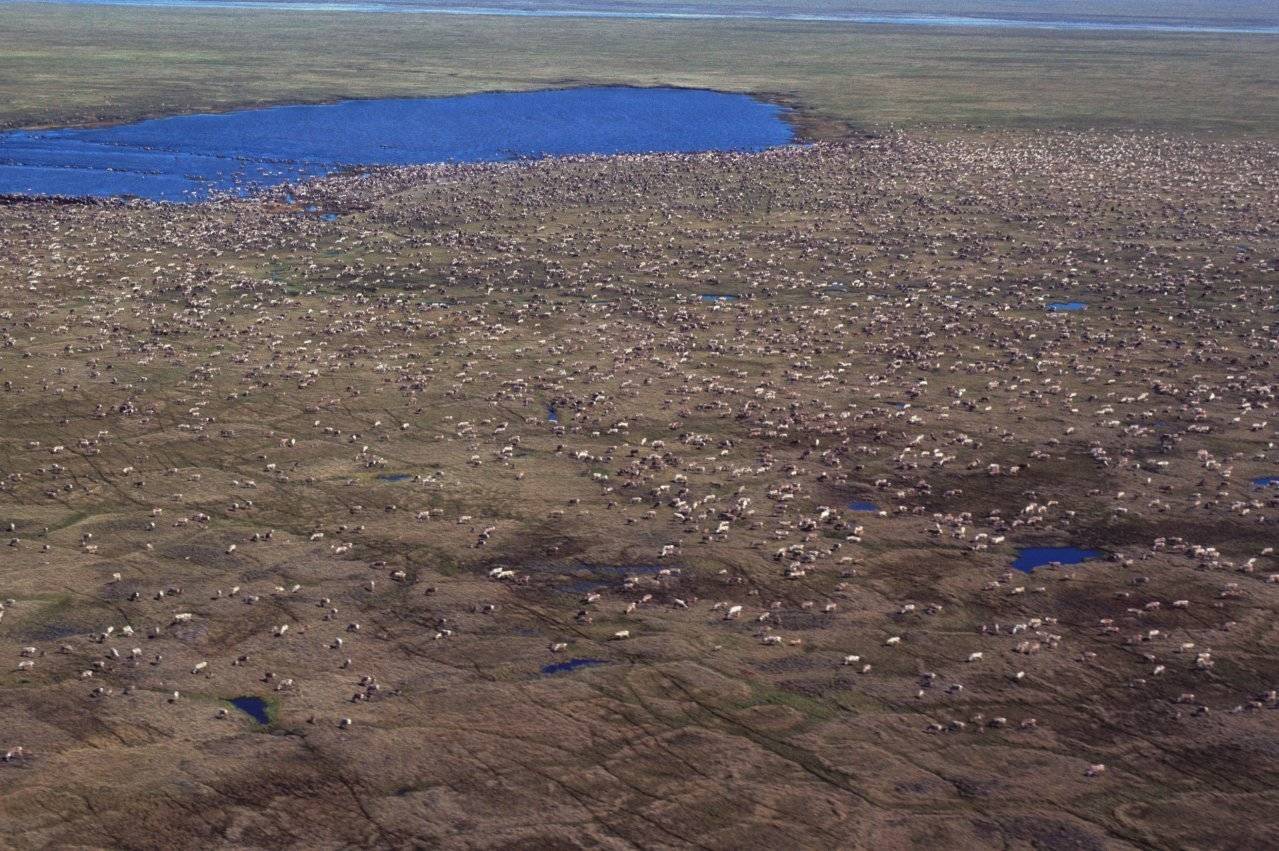WASHINGTON — Alaska Sen. Lisa Murkowski says her legislation to open Alaska’s Arctic National Wildlife Refuge to oil and gas drilling would generate $2 billion in royalties over the next decade — with half the money going to her home state.
But environmental groups and other critics call those projections wildly optimistic, noting that recent sales on Alaska’s North Slope have fallen short of projected revenue.
Murkowski chairs the Senate Energy and Natural Resources Committee, which will hold a hearing on the bill next week. The measure calls for at least two major lease sales over the next decade in areas encompassing at least 400,000 acres each in the refuge’s coastal plain. Surface development would be limited to 2,000 acres.
The 19.6-million acre refuge in northeastern Alaska is one of the most pristine areas of the United States and is home to polar bears, caribou, migratory birds and other wildlife.
The wildlife refuge has been the focus of a political fight for more than three decades. President Bill Clinton vetoed a GOP plan to allow drilling in the refuge in 1995, and Democrats led by Sen. Maria Cantwell of Washington state defeated a similar GOP plan in 2005.
The Trump administration and congressional Republicans are pushing to revive the drilling plan as a way to help pay for proposed tax cuts promised by President Donald Trump. The GOP-approved budget includes $1 billion in revenue from drilling leases over 10 years.
The bill requires at least a 16.67 percent royalty rate evenly split between the federal government and Alaska.
Murkowski said the bill represents “a tremendous opportunity for both Alaska and our country” and will “put us on a path toward greater prosperity by creating jobs, keeping energy affordable for families and businesses, generating new wealth and strengthening our security.”
Not only will the bill reduce the federal deficit by $1 billion over ten years, it will save even more over decades to come as drilling expands, Murkowski said.
Taxpayers for Common Sense, a fiscal watchdog group, says the drilling legislation is likely to generate about $100 million for U.S. taxpayers — one-tenth the amount Murkowski and the Congressional Budget Office predict.
Gene Karpinski, president of the League of Conservation Voters, said Murkowski’s bill would “hand over the pristine Arctic National Wildlife Refuge to Big Oil to generate fantasy revenues to justify tax cuts for the wealthiest.”
Because of high exploration costs in the remote Arctic, analysts say oil prices must be at least $70 a barrel to justify drilling. A benchmark for crude oil is about $57 a barrel.
Adam Kolton, executive director of the Alaska Wilderness League, which opposes ANWR drilling, called the GOP revenue projections “pure fantasy,” adding: “This is a dry hole in the budget.”
The drilling bill is supported by most congressional Republicans, including Alaska Sen. Dan Sullivan and the state’s sole House member, Don Young. Independent Gov. Bill Walker also backs the bill.

